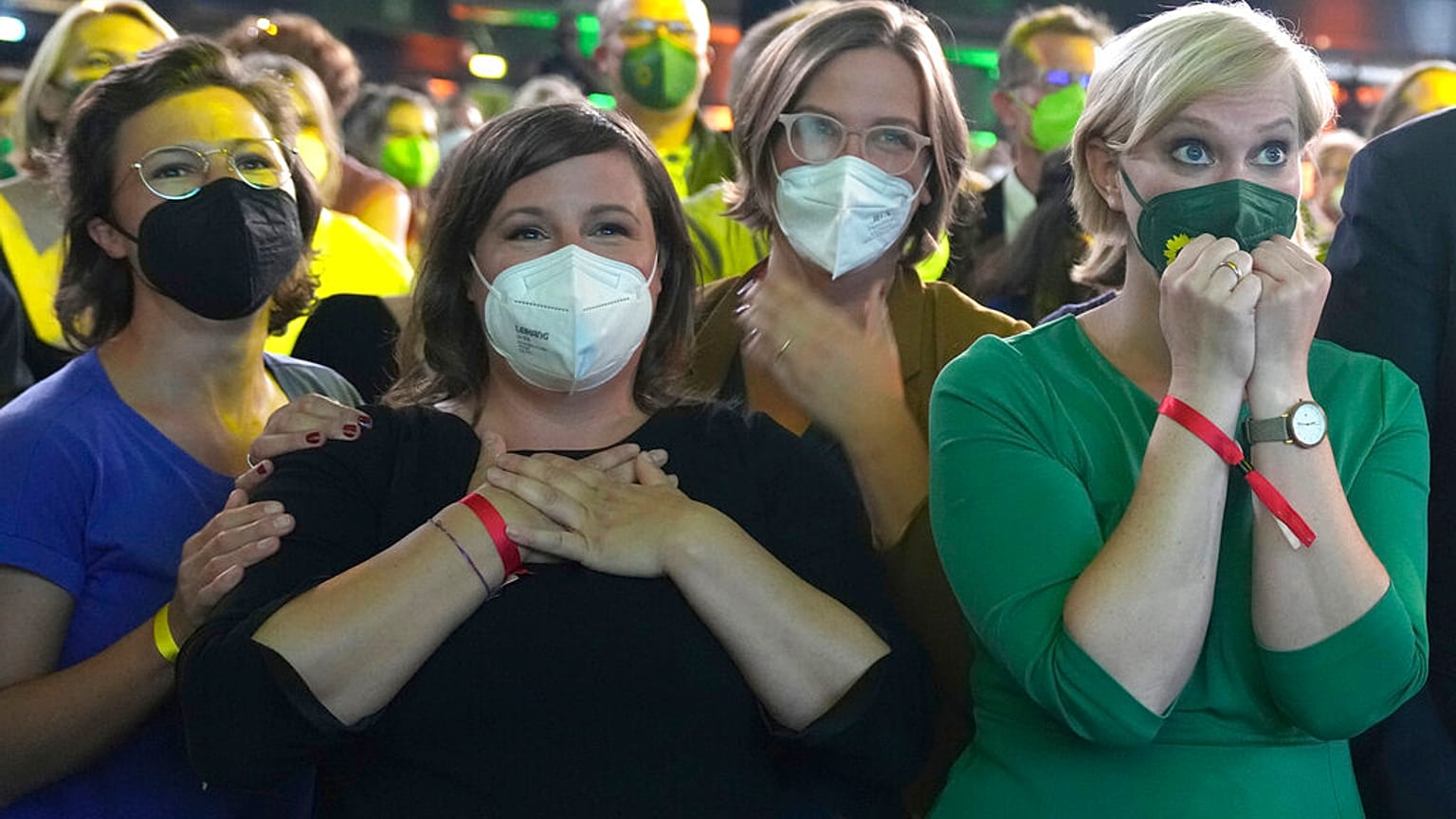"Angela Merkel had more luck in pushing the climate agenda abroad than at home - in Germany, she had no choice but to balance between competing demands from powerful car and coal industries."
Last Sunday Germans voted in a historic election, deciding who will replace Chancellor Angela Merkel after her 16-year tenure.
 ADVERTISEMENT
ADVERTISEMENT
 ADVERTISEMENT
ADVERTISEMENT
Ultimately her ruling CDU’s pick for Chancellor Armin Laschet lost to the Social Democrats SPD’s Olaf Scholz, and negotiations over a coalition that can command a majority are ongoing.
It may take weeks to find out whether Scholz or Laschet will become the next Chancellor.
But what does SPD’s win and the departure of Merkel, dubbed "The Climate Chancellor", mean for Germany’s climate leadership, a part of Germany’s national brand under Merkel?
The ‘Climate Chancellor’
During her 16 years in office, Merkel pressured other political parties to review their green credentials by putting the environment at the centre of German politics.
Even so, many were left wondering if she lived up to her ‘Climate Chancellor’ moniker.
The reality is that Merkel had more luck in pushing the climate agenda abroad than at home. In Germany, she had no choice but to balance between competing demands from powerful car and coal industries.
Merkel’s strong reliance on science had been a big part of her success, from hosting the first-ever COP climate summit, to leading Germany through COVID-19.
Yet Germany’s fossil fuel addiction remained a blind spot for her.
Merkel’s critics accused her of ignoring the harmful environmental impacts of fossil fuels and Germany’s automotive sector was labelled an Achilles heel for the CDU which has close ties to the leading export industry.
Recently Merkel announced the car industry was a “central part of the solution” to the climate issue, and the plan to see 1 million electric car (EV) charging points by 2030 was part of an attempt to halve carbon emissions.
Germans were not thrilled: a recent survey (in German) in 22 countries discovered that Germans were the most sceptical about the viability of EVs.
In terms of take-up, Germany still falls behind Norway, Sweden and the Netherlands.
Are Germans forced to choose between fossil fuels and EVs? Fortunately not. The reputation of EVs has been challenged because of the polluting battery manufacturing process.
Whilst EVs may not be the ultimate solution, when combined with wider deployment of renewables such as biofuels, they can reduce carbon emissions.
Biofuels offer an alternative
Biofuels could offer a renewable alternative to fossil fuels for the German transport sector, the only industry that failed to reduce greenhouse gas emissions since the 90s. However, this progress has been further hampered by the European Union.
In 2018, the EU implemented a ban on palm oil for biodiesel, which ironically gives the highest yield per acre of any oilseed crop – up to nine times more than other crops including rapeseed, sunflower and soybean.
Critics labelled the ban a protectionist move to promote the EU’s domestic biofuels industry, primarily European rapeseed dominating the biofuels market.
Despite the association with deforestation, if produced sustainably, palm oil could triumph over alternatives.
Last month, leading palm oil producers announced their transition to net-zero emissions, a move to increase sustainability in the sector.
Malaysia is an example of these investments yielding results: with its nationally mandated Malaysian Sustainable Palm Oil (MSPO) scheme, the country has certified around 90% of its palm oil.
Thus, over the past four years, Malaysia has seen a decrease in deforestation, due to tougher law enforcement under MSPO.
The green transition of the German transport sector won’t be an easy road. Yet, cars have been a defining question for the German electorate, hindering the Greens’ success despite the party leading the polls in April.
Approximately every 50th German is employed by the automotive sector and experts fear the switch to EVs will cause unemployment.
After fatal floods swept through Germany in July, climate change has been at the heart of the national debate, continuing to be German voters’ top concern. That said, there is a gap between green ideas and how Germans think.
Understanding this could explain why the Greens’ Annalena Baerbock failed to capitalise on the climate crisis, alienating some voters with an ambitious climate agenda although evidence shows climate change has increased the risk of natural disasters in Europe.
The Greens are however likely to have a key role in the next government especially since SPD expressed interest in joining forces.
The upcoming government will entail a power-sharing deal which will, without doubt, influence Germany’s climate leadership in the post-Merkel era.
Isabel Schatzschneider is an environmental activist and researcher specialising in food ethics, religious ethics and animal welfare. She is currently working as a research associate at the Friedrich-Alexander University, Erlangen-Nüremberg.














